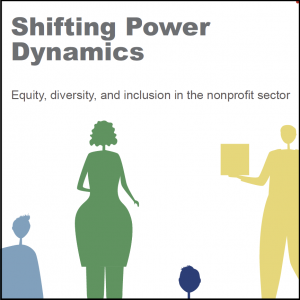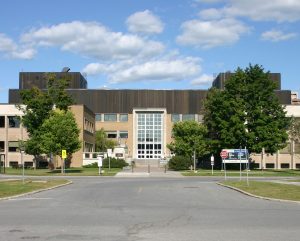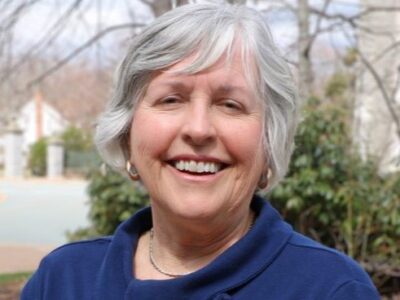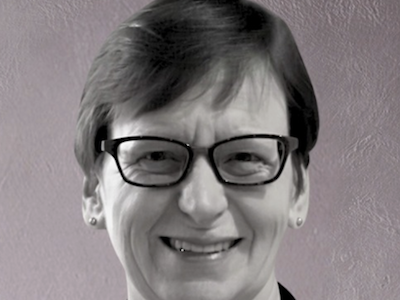 Cathy Barr is Vice-President of Research and Strategic Relationships for Imagine Canada, which works to strengthen Canadian charities and nonprofits so they can better serve individuals and communities. Over the past twenty years, Barr has led dozens of data, research, and knowledge mobilization projects focused on Canada’s charitable and nonprofit sector. She has a PhD in Political Science from York University and is also an advisor with the Canadian Centre for Nonprofit Digital Resilience. She spoke with PANL Perspectives about Imagine’s work related to data and a new Data Centre in Canada. The interview has been shortened and edited.
Cathy Barr is Vice-President of Research and Strategic Relationships for Imagine Canada, which works to strengthen Canadian charities and nonprofits so they can better serve individuals and communities. Over the past twenty years, Barr has led dozens of data, research, and knowledge mobilization projects focused on Canada’s charitable and nonprofit sector. She has a PhD in Political Science from York University and is also an advisor with the Canadian Centre for Nonprofit Digital Resilience. She spoke with PANL Perspectives about Imagine’s work related to data and a new Data Centre in Canada. The interview has been shortened and edited.
Question: You talk about different types of data. What are they? What data, specifically, is needed?
 Barr: The way Imagine Canada looks at it, the way I look at it, we need more data about the charitable and nonprofit sector, or about social-purpose organizations. We’re interested in the universe of organizations that are non-governmental and that are not for-profit businesses. They’re a third sector and they’re an important part of Canadian society and Canada’s economy. The third sector represents more than 8% of the country’s GDP, and it delivers services to Canadians across the country.
Barr: The way Imagine Canada looks at it, the way I look at it, we need more data about the charitable and nonprofit sector, or about social-purpose organizations. We’re interested in the universe of organizations that are non-governmental and that are not for-profit businesses. They’re a third sector and they’re an important part of Canadian society and Canada’s economy. The third sector represents more than 8% of the country’s GDP, and it delivers services to Canadians across the country.
Beyond that, because of all the services provided by the sector and the money flowing from governments and the private sector, we need to know more about where the money is going in the third sector, and what’s being done with it — and government needs good data to make good decisions about the sector.
A lot of people, including me, believe that for government to pay more attention to our sector, we have to be able to demonstrate more about who we are and what we do — and for that, we need data. We’re kind of invisible as a sector.

In another article of our Data series, Shawn Bunsee, Vice President of Data & Analytics and Chief Privacy Officer at CanadaHelps until 2022, explains how the nonprofit sector needs to mature when it comes to data issues: “Does Our Sector Lack a Culture of Data-Driven Decision-Making?”
Organizations in the sector need data about the issues they’re focused on. So, we need data about housing, or childcare, or healthcare services, or the environment. My interest is in data related to the sector, but tangentially, I’m also aware that we need that other type of data, too. Frankly, there’s more data about these topics, but organizations don’t always know about it, so there’s a job to be done to make that data more visible.
Q: Is there also a huge gap in data about underserved or marginalized communities?
Barr: There’s an enormous gap in data about the nonprofit sector in general – we don’t even know how many nonprofit organizations exist in Canada — but the lack of knowledge and data about underserved populations and equity-seeking groups is also tremendous.
At the beginning of the pandemic, we had government staff calling us wanting to know things like how many organizations in Toronto serve the Black community, how many organizations in British Columbia serve people with disabilities — and we don’t know. Imagine Canada doesn’t know. The government doesn’t know. Nobody knows. The only thing we could tell them definitively was that nobody knows. Government officials were shocked and appalled. They thought we had this information.

“Shifting Power Dynamics: Equity, Diversity, and Inclusion in the Nonprofit Sector” (2023) is a 62-page slideshow that summarizes results from a survey of 1,655 charities and nonprofit groups.
With a large consortium of organizations, we just did a survey on the equity, diversity and inclusion (EDI) practices of approximately 1,600 charities and nonprofits. You could read that and say, “Well, it doesn’t really tell me much that I don’t already know, like, Black-led and BIPOC organizations are doing more.” That data isn’t going to surprise anyone who’s been around the sector, but it’s still very useful to have it in numbers. It helps to motivate change in EDI and other things — and it makes it harder to dismiss the issues.
The federal government and Statistics Canada collect the most detailed data about every possible industry and sector you can imagine, and yet, the data they collect on nonprofits is minuscule in comparison. I got into it in some detail in an article, “The non-profit sector’s ongoing data deficit,” in The Philanthropist, two years ago, but things have improved since I wrote that article.
Statistics Canada is actually going to do another full-scale survey of charities and nonprofits — and they haven’t done that since 2003.
Q: What’s the idea for a Nonprofit Sector Data Centre? How did it start?
Barr: The Nonprofit Federal Data Coalition was re-convened by Imagine Canada and the Ontario Nonprofit Network in early 2022. That group developed a Pre-Budget Submission, for the 2023 Federal Budget. We also created the Written Submission for the Pre-Budget Consultations in Advance of 2024 Federal Budget. These make recommendations to the federal government in relation to data, and one of the recommendations is about investing in a Nonprofit Sector Data Lab, or Data Centre.

Statistics Canada building.
The model for this is a Business Data Lab that’s a partnership between Statistics Canada, the Ministry of Innovation, Science and Industry, and the Canadian Chamber of Commerce. The lab collects and mobilizes data about business and business conditions. The idea of a Nonprofit Sector Data Lab is based on that —on the idea that the federal government should invest in and partner with the nonprofit sector to create a hub or place where data would flow from Statistics Canada to a Data Lab, and then be made available to nonprofit organizations.
One of the advantages of this is that it would also build expertise and focus on the nonprofit sector within Statistics Canada. Right now, there are various groups in Stats Can doing work related to the sector, and information is distributed here and there, but there’s little focus — and it’s difficult for nonprofits to access the data. It’s not really the mandate of Statistics Canada to distribute data, even though they try to do that. Their mandate is mainly to collect data. So, the Data Lab could do this. There could also be research conducted through a Data Lab.
Q: How is the Coalition’s work valuable if the pre-budget submissions don’t end up in a federal budget?
Barr: This is a public statement from a large number of organizations in the sector. It provides a list of recommendations they can use in their own pre-budget submissions or when talking to politicians or government officials. It really helps get attention when a large number of organizations focus on a small number of asks. It shows the government we’re united in what we want.
Hopefully, some organizations that are interested in data get invited to present before the House of Parliament’s Finance Committee, and they can emphasize these recommendation. Imagine Canada also hosts an annual lobby day on Parliament Hill, and we’ll talk about data then.
Q: Is there other work going on regarding a Data Centre?

“The Challenges of Big Data in the Nonprofit Sector,” by Michael Lenczner, is one of many articles in our series about Data.
Barr: Michael Lenczner, Nathan Grasse and I have also been working on a proposal for a Data Lab, and we’ve been talking to federal government officials at Statistics Canada, and at the Ministry of Employment and Social Development of Canada (ESDC), about it. We’ve been asking them what they think of the idea, what makes it compelling, who we should talk to about it, where do they think we could find money for it? We’ve tried different routes. The idea that the sector needs some sort of infrastructure to take data that’s been collected by the government, to clean it, to distribute it, and to help organizations to use it — a Data Lab — has been around for a long time, for at least ten years.
Q: Is there any hope that anything will happen regarding a Data Lab?

The President & CEO of Philanthropic Foundations Canada spoke to “PANL Perspectives” about what can be done to improve data from the T3010 tax form and other sources from the Canadian government.
We’re closer now to getting it than we’ve ever been before. When we saw that Statistics Canada started a data lab with the Canadian Chamber of Commerce, we thought, “That’s it. That’s a good model.” And we’ve got the Nonprofit Federal Data Coalition, and our asks are getting clearer and sharper.
Also, since the pandemic, there’s been more recognition of the sector, more understanding within government of the role of the sector, and more awareness about the problems presented by the lack of information and lack of data. It feels like there’s more momentum now.
Cathy Barr is on LinkedIn. Photo courtesy of Mehdi Sepehri and Demetri1968 and Wiki Commons.
Sign up for PANL Perspectives' free monthly newsletter
Monday, September 25, 2023 in Data Discoveries, For homepage, News & Events
Share: Twitter, Facebook



